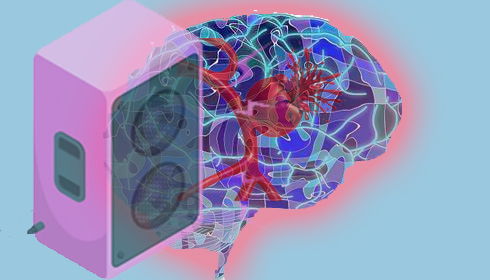
Family History of Mental Illness Raises CTE Aggression Risk: Study
A new study suggests that individuals with chronic traumatic encephalopathy (CTE), a progressive brain condition believed to result from repeated head injuries, including concussions and sub-concussive impacts, who have a family history of mental illness may be at a heightened risk of aggressive behavior, particularly in middle age. Published in the Neurology journal on November 27, 2024, the research highlights how genetic and environmental factors may interact to influence the outcomes of neurodegenerative diseases like CTE.
Athletes and military personnel frequently experience CTE, a progressive brain disease associated with repeated head injuries. The condition is associated with mood disorders, behavioral changes, and, in severe cases, dementia. While CTE alone increases the likelihood of aggression, the study found that the combination of CTE and a family history of mental illness significantly amplifies this risk.
The study, conducted by Dr. Jesse Mez and his team at Boston University Chobanian & Avedisian School of Medicine, examined 845 men who had experienced repetitive head impacts due to contact sports or military service. Among these participants, 70% (589 individuals) were diagnosed posthumously with chronic traumatic encephalopathy (CTE), a condition linked to repeated head injuries. Additionally, 45% (383 individuals) had a family history of mental illness, including conditions such as depression, bipolar disorder, anxiety, post-traumatic stress disorder (PTSD), and obsessive-compulsive disorder (OCD).
To analyze the interplay between CTE and a family history of mental illness, participants were divided into four distinct groups: those with both CTE and a family history of mental illness (30%), those with CTE but no family history of mental illness (40%), those without CTE but with a family history of mental illness (15%), and those without either CTE or a family history of mental illness (15%). This grouping allowed researchers to identify how these factors independently and collectively influenced behavioral outcomes, particularly aggression.
Aggressive behavior was assessed through interviews with family members and spouses, who rated behaviors such as verbal disputes and physical altercations on a scale from 0 to 44.
The study found that individuals with both CTE and a family history of mental illness exhibited higher levels of aggression compared to those with only CTE. On average, those with both risk factors scored 19 for aggression, while those with only CTE scored 17. This link between aggression and the combination of CTE and a family history of mental illness was particularly significant in individuals who died between the ages of 40 and 59. For this group, participants with both risk factors scored 0.64 standard deviations higher on aggression measures than those with CTE alone.
Importantly, for individuals without CTE, a family history of mental illness did not increase the likelihood of aggressive behavior. “This appears to be a case where together these risk factors add up to a greater risk for aggression than they each do on their own,” noted Dr. Mez. “The relationship was most striking for participants who died between 40 and 59 years old.”
“This appears to be a case where together these risk factors add up to a greater risk for aggression than they each do on their own,” explained Dr. Mez. “The relationship was most striking for participants who died between 40 and 59 years old.”
The findings shed light on the complex interplay of genetics, environment, and neurodegenerative disease in shaping behavior. Dr. Mez emphasized the potential for these insights to inform early intervention strategies, stating, “Identifying people who are more likely to show symptoms of aggression based on family history of mental illness would give us a way to predict the consequences of CTE and identify who may benefit most from treatment options.”
He further noted that the connection between family history and aggression could stem from shared genetic predispositions or environmental factors, such as adverse childhood experiences.
The study relied on retrospective data collected from family members and spouses, which introduces the possibility of recall bias. Despite this limitation, the findings underscore the need for further research into genetic and environmental risk factors for CTE-related aggression.
The research highlights the importance of addressing mental health history in the context of managing CTE symptoms. As scientists continue to unravel the genetic and biological mechanisms of neurodegenerative diseases, the study opens the door for tailored treatment approaches for those most at risk.